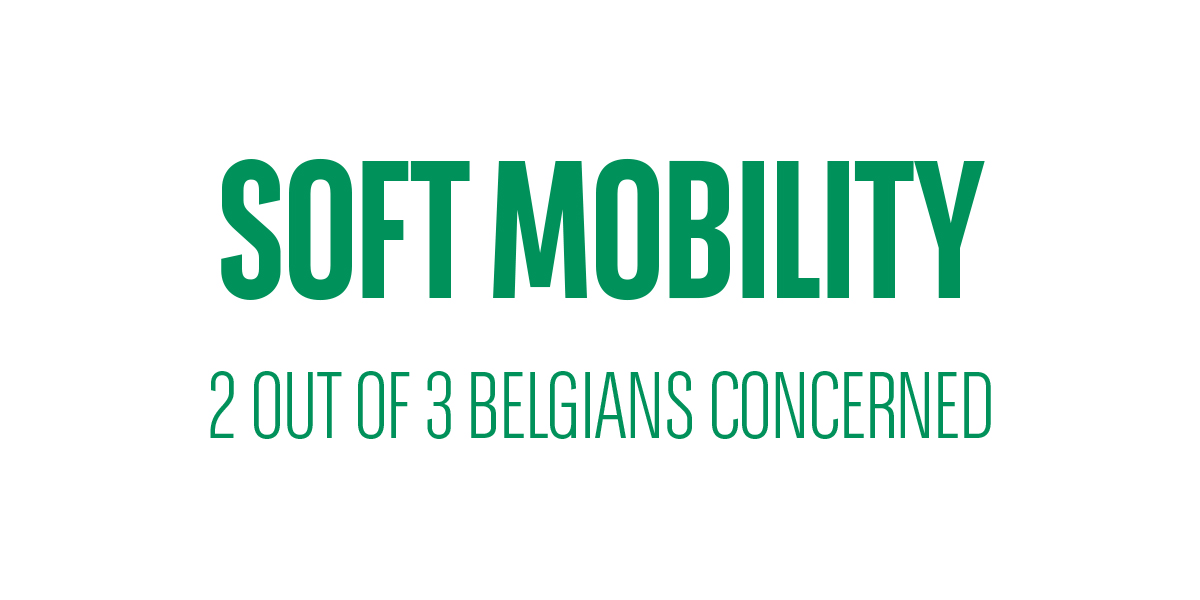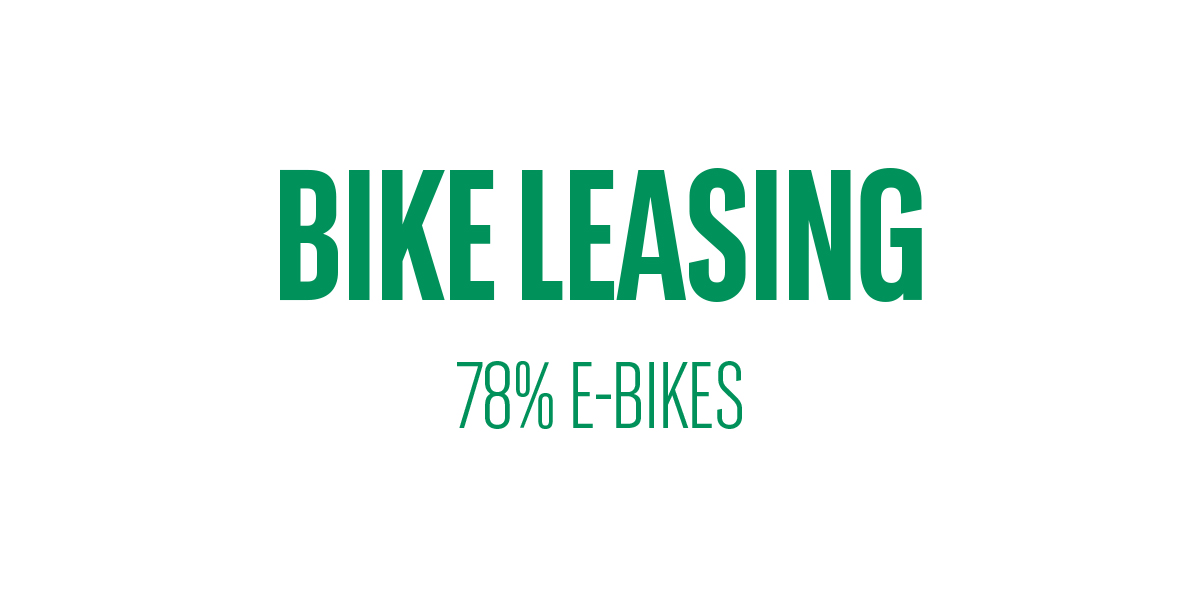Travelling to work: the rise of cycling
3 min
More and more people are cycling to work. Mobility solutions expert Philippe Kahn explains how and why.
People are changing the way they travel to limit their environmental impact: behaviours are starting to shift, and the use of bicycles is rising, including and especially for travelling to and from work. We spoke to Philippe Kahn, Mobility Solutions Expert at Arval BNP Paribas Group, about these developments.
Two out of three belgians use soft mobility, mainly bicycles

According to Profacts’ “Mobility Tomorrow & Beyond” survey, two out of three Belgians have adopted soft mobility. "But the biggest change is the increasing use of bicycles for business travel and commuting. People are also using bicycles more on the school or nursery run, facilitated by the arrival of electric cargo bikes on the market," says Kahn.
A favourable regulatory framework
But what are the reasons for the increased use of bicycles for business travel? “Let’s first take a look at how the regulatory framework has changed," says Kahn. "In Belgium, the creation of the federal mobility budget has made alternative ways of travelling attractive for all employees. The budget makes it possible to choose a comfortable company bicycle as part of a tax-friendly salary package. Moreover, this mobility budget can even be used to cover housing costs if you work from home more than half the time or if you live within 10 km of your place of work. So instead of having a company car, people can choose to have a combination of an electric bicycle and a contribution to their housing costs. Furthermore, two measures effective from 1 May 2023 should reinforce this trend: the bicycle allowance for commuting is increasing to €0.27 net per km travelled, and all Belgian employees will be entitled to this allowance. In practical terms, this means that those who choose to cycle for these journeys will be substantially rewarded.”
Investment in public infrastructure is paying off
Another important factor in the increased use of bicycles is the development of road infrastructure.Philippe Kahn: "One factor that can convince people to cycle to work is the certainty of a safe journey. A few years ago, cycling to work in Brussels, for example, could be dangerous. But today, cycling infrastructure is making these journeys increasingly safe, in particular thanks to the cycle motorways on which only bicycles can travel. Infrastructure investments are now also happening in the rest of Belgium, not just Flanders and its major cities. In recent years, Brussels has undergone significant changes, and things are also starting to move in Wallonia.”
Half of all belgians live within 15 km of their place of work
Distance from the workplace is also crucial in determining how attractive cycling is. "One in two Belgians lives within 15 km of their workplace, a distance that you can easily cycle," adds Kahn. "Along with the Improved infrastructure, this means that cycling to work is a realistic option for many Belgians. And the €0.27 per kilometre allowance will be an added incentive for them to make the change.”
WHAT IS THE FEDERAL MOBILITY BUDGET?
This scheme allows the budget initially allocated to an employee’s company car to be divided into three pillars within a salary package. These three pillars are:
- a car with no or low CO2 emissions (less than 95 g/km), such as an electric vehicle;
- sustainable means of transport, including cycling, but also in some cases this pillar can also cover housing costs, such as rent or mortgage repayments;
- the balance of the mobility budget, which is paid in cash.
The mobility budget makes it possible, for example, to replace a combustion-powered company car with an electric car and a bicycle, with the same tax-friendly terms for both the employer and the employee.
78% of leased company bicycles are electric
To meet the needs of companies and their staff, Arval is now offering bicycle leasing. This full-service lease covers maintenance, breakdown assistance, insurance and repairs, as is traditionally the case for a car. Philippe Kahn points out some very significant trends in this area: "60% e-bikes and 18% speed pedelecs: in total, 78% of our leased company bikes are electric.

High-end bicycles costing several thousand euros, such as electric cargo bikes, are also highly successful, which is probably due to opportunity: the mobility budget or employer “cafeteria plan” benefits packages are making it possible for people to acquire these bikes. But it may also be a consequence of Belgium’s specific tax regulations: the more expensive the bicycle, the more significant the tax incentive. Another interesting observation is that when a bicycle replaces a car, it’s usually the family’s second car. So we’re not yet seeing any radical replacement of cars by bicycles, but the emergence of the company bicycle is definitely reducing the total number of kilometres travelled by car.”
Digital applications: shifting up a gear
Lastly, Kahn points to another factor that could encourage more people to take up cycling to work. "I think that technology, and in particular digital applications, can make a big difference. We can expect strong growth in the market for apps dedicated to commuting by bike. The business model for on-the-go electric bike rental is already based on a smartphone app. So imagine the success of an application that gives you a safe and bicycle-friendly route for travelling to and from work, and the boost that this could give to this type of travel," concludes Kahn.


